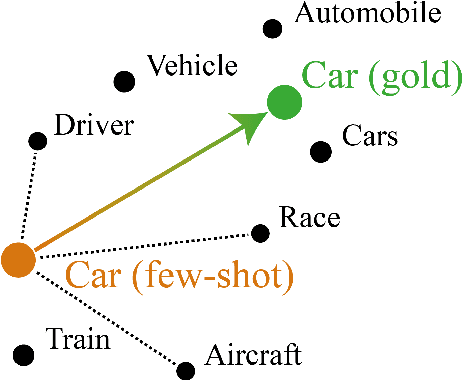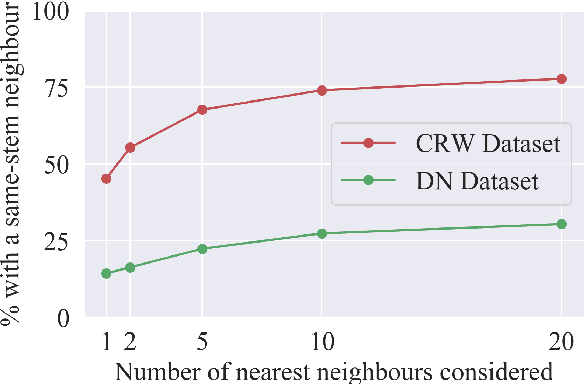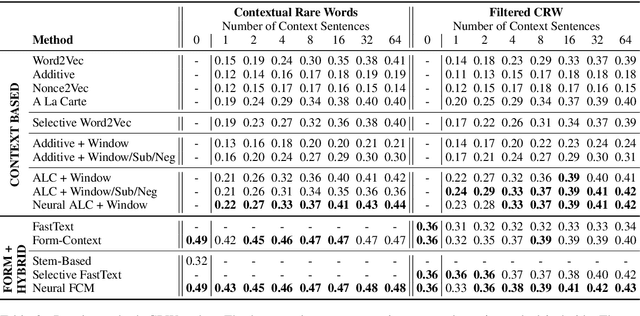Bad Form: Comparing Context-Based and Form-Based Few-Shot Learning in Distributional Semantic Models
Paper and Code
Oct 01, 2019



Word embeddings are an essential component in a wide range of natural language processing applications. However, distributional semantic models are known to struggle when only a small number of context sentences are available. Several methods have been proposed to obtain higher-quality vectors for these words, leveraging both this context information and sometimes the word forms themselves through a hybrid approach. We show that the current tasks do not suffice to evaluate models that use word-form information, as such models can easily leverage word forms in the training data that are related to word forms in the test data. We introduce 3 new tasks, allowing for a more balanced comparison between models. Furthermore, we show that hyperparameters that have largely been ignored in previous work can consistently improve the performance of both baseline and advanced models, achieving a new state of the art on 4 out of 6 tasks.
 Add to Chrome
Add to Chrome Add to Firefox
Add to Firefox Add to Edge
Add to Edge